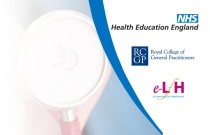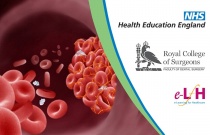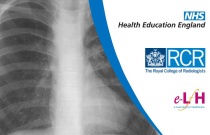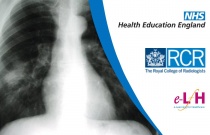Protecting Families/Resilience
Sarah Cowley
0.50 Hours
This session aims to explain the concept of resilience in childhood and why it is important. It will also describe the role of families and communities in developing resilience and identify research about practice that supports the development of resilience.
Safeguarding Children - Unexplained Injuries
Giles Armstrong
0.50 Hours
This session will consider the management of an unexplained injury in a child, when there is disagreement between professionals.
Differential Diagnosis Investigation and Treatment of Chest Pain in Pregnancy
Dawn Adamson and Catherine Nelson-Piercy
0.50 Hours
This session looks at the causes of chest pain in pregnant women. It covers how to differentiate and investigate the pain as well as how to treat the causes, concentrating predominantly on thromboembolism, ischaemic heart disease and dissection.
Pathophysiology Presentations and Management of Cocaine-related Chest Pain
David Wood
0.50 Hours
This session describes the pathophysiology, presentations and management of cocaine-related chest pain.
Causes of Palpitations - Atrial Flutter
Malcolm Finlay
0.25 Hours
This session describes the underlying conditions predisposing to the development of atrial flutter and outlines how the cardiac re-entrant arrhythmia can lead to the typical 12 lead ECG, the underlying arrhythmia circuit.
Characteristics of Ventricular Tachycardia Versus Supraventricular Tachycardia
Mehul Dhinoja
0.25 Hours
This session will cover how to identify the diagnostic features of ventricular tachycardia from a 12-lead electrocardiogram reading.
Pericarditis: Investigation and Management
Rohit Raj
0.50 Hours
This session considers causes of acute pericarditis, appropriate investigations to perform and management options.
Anaphylaxis
Imogen Ketchley and Louella Vaughan
This session explores the triggers, pathogenesis, presentation, clinical diagnosis and natural history of anaphylaxis, as well as the use of laboratory confirmatory markers.
Person-centred Care
Arthur Hibble
This session introduces the Person-centred care element from the 'Communication and Consultation' domain of the RCGP curriculum's 'Areas of Capability'. It explores the concepts that underpin person-centred care through a consultation with a patient. This session was reviewed by Khyati Bakhai and updated in November 2022.
Comprehensive Approach
Arthur Hibble
This session introduces the nature of comorbidity, complexity, health belief and keeping healthy.
Attitudes and Behaviour
John Skelton
The aim of this session is to get you to think about communication skills and whether basic skills are sufficient for communicating effectively with patients.
Ethical Tensions in the Consultation
Clare Gerada
There is always the possibility of conflict between a doctor’s view and that of the patient. This session explores some of the common ethical issues that confront doctors in their day to day practice.
Difficult Consultations
Connie Wiskin
0.50 Hours
This interactive session explores some of the difficulties associated with patients whose behaviour doctors find challenging and who may provoke strong feelings in doctors.
Peritoneal Dialysis Catheter Insertion - Webinar
Professor Steve Holt
How to insert a peritoneal dialysis catheter and manage for best outcomes
Opioid Overdose Prevention Toolkit (Updated)
Industry Specialists
1.00 Hours
Opioid overdose continues to be a major public health problem in the United States. This CEU course discusses opioid use disorders, steps for first responders, information for prescribers, and safety advice for patients and family members.
Bleeding Disorders of Importance in Dentistry
StJohn Crean, Rishi Bhandari
The session looks at the relevance of blood disorders to the delivery of dental care by the dental practitioner.
Assessment of Odontogenic Infections
Tara Renton
This session will address the assessment of odontogenic infections.
Organ Trauma Vascular Iatrogenic Trauma and Intravascular Drug Abuse
Morgan P. McMonagle
0.50 Hours
This session describes the types of localised trauma often seen after iatrogenic instrumentation of the peripheral vessels and chronic intravenous drug abuse. This includes complicated groin with bleeding, pseudoaneurysm formation with the potential for superinfection and mycotic aneurysm formation.
Principles of Transplant Immunology and Immunosuppression
Simon Knight
0.50 Hours
This session outlines the basics of transplant immunology and immunosuppression. It will discuss the use of tissue typing to prevent hyperacute rejection and the use of immunosuppressive drugs to help prevent acute and chronic allograft damage. The side effects of commonly used immunosuppressive drugs will be outlined.
Pericardial Disease
Charles Peebles
0.50 Hours
This session covers the normal imaging appearances of the pericardium, normal variants, and pathological findings. The modalities discussed include computed tomography (CT), magnetic resonance imaging (MRI), and chest radiography (CXR) with references to echocardiography.
Chest X-ray in the Older Child with Cardiac Disease
John Partridge
0.50 Hours
This session describes the various abnormalities of heart shape and pulmonary perfusion to be found in the spectrum of congenital heart disease (CHD) beyond infancy.
Patterns of Atelectasis and Collapse
Erica Thwaite
0.50 Hours
This session looks at the different types of atelectasis and their common causes. The typical appearance of each type of atelectasis is shown on the chest radiograph (CXR) and computed tomography (CT).
Persistent Consolidation
Sue Kearney
0.50 Hours
The aim of the session is to provide the reader with a clear understanding of the causes of persistent consolidation and to highlight the circumstances where further investigation is mandatory.
Causes of Mediastinal Nodal Disease
John Curtis
0.50 Hours
This session is aimed at achieving an understanding of the causes and appearances of mediastinal nodal disease including nodal calcification and 'egg-shell' calcification.
























